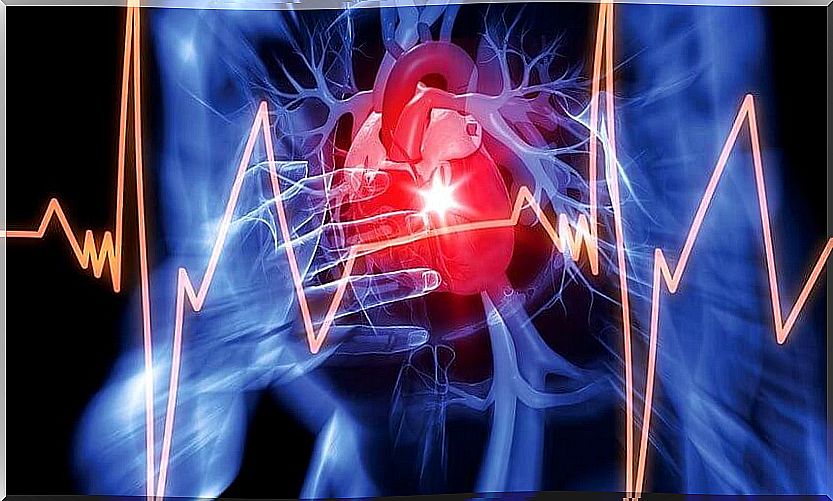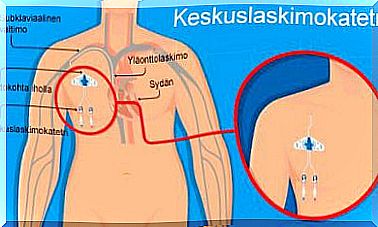7 Ways To Damage Heart Health

Taking care of the heart is something that is on our to-do list. Some habits are detrimental to the well-being of the heart, and yet these habits are very common.
The World Health Organization (WHO) has stated that cardiovascular disease remains the leading cause of death in the world.
This fact should be better considered, as a large number of deaths could be avoided by investing more in heart health.
Factors such as smoking, poor diet, obesity, alcohol, and a sedentary lifestyle lead to the development of cardiovascular disease and can have serious effects in both the short and long term.
Although the small number of deaths related to heart disease is due to hereditary factors, and not the ones we mentioned above, we should take more responsibility from our hearts if we want to stay healthy for longer.
Our daily habits make this organ better or worse fit. You should take care of your heart with small changes in everyday life – make the following corrections and also think about the things we describe, all of which relate to your heart.
Habits that damage heart health
1. Snoring

You may think that snoring is normal, and you may have heard it said that all of us snore more or less.
So usually we don’t think about it either, even if a partner or someone else complains about our snoring, or when we wake up tired and head aching. We are sure that there is no need to worry about this.
However, seeing snoring as a completely harmless thing is a big mistake.
Many of the people who snore may suffer from obstructive sleep apnea. This condition involves a sudden blockage in the breath, leading to a change in blood pressure.
If this disorder occurs throughout the night, it can seriously affect heart health.
2. Ignoring oral health
This is one of the risks a person should be aware of in their daily lives – namely, that gum disease can affect heart health.
Dental diseases range from minor gingivitis to more serious problems, and in many cases can even result in tooth loss.
It is not worth forgetting the fact that the mouth is full of bacteria, and in addition, plaque or tartar can enter the body, resulting in inflammation.
If these bacteria enter the bloodstream, they can damage the heart. So don’t think twice, but visit your dentist regularly!
3. Too much red meat

Red meat is not in itself unhealthy if consumed only occasionally.
Instead of taking it out of your diet completely, you should just keep in mind that it is high in saturated fats that affect cardiovascular health.
Because it is high in saturated fats, red meat should not be a constant guest on your plate. The same applies to other meat products, such as lard, sausages or products that contain industrial ingredients and are very harmful to health.
As always, the key here is balance.
4. Passive smoking
You may be an active and athletic person yourself and live a healthy life, and you may be one of those who stick firmly to a healthy lifestyle, avoiding harmful things to the heart.
However, you may work or live with a smoker.
If so, you can’t ignore it, because even passive smoking carries a risk of cardiovascular disease, just like smoking.
This is another reason why it would be worth encouraging people close to you to quit smoking – it would help others other than themselves.
5. Too little fruit and vegetables

You probably know someone who says, “I don’t like anything green… Nothing where there is no meat is not right for me”.
However, it is a fact that “good food” is one that makes a person healthier, keeps the heart in good shape, and takes care of balance due to the right amounts of nutrients.
Fruits and vegetables are essential ingredients in a healthy diet. Replacing them with junk food or meat poses a higher risk of cardiovascular disease.
6. Emotional problems also affect the heart
Workplace problems such as quarreling with a boss or disputes between colleagues, family worries, life crises, unhappiness, loneliness… All of these are potential detrimental factors to your heart.
If the problems persist, they can cause serious damage to the heart.
Stress, anxiety, or dissatisfaction means elevated blood cortisol levels, and in addition to hormonal changes, this can cause great damage to your health in the long run.
7. Moving today’s health concerns to tomorrow

Chest or arm pain, tiredness after climbing stairs, mouth or stomach pain, stiff neck or chin, dizziness, occasional fainting, tachycardia… In many cases, these are associated with heart problems.
Most of us still barely have time to rest and see a doctor to examine ourselves. We say to ourselves that “it’s nothing but stress”. We leave our pain and aches to be resolved in the future until something serious then perhaps happens.
You can avoid these types of situations by taking the time to increase the well-being of your heart and realizing that small symptoms play a very big role. They warn you that something is happening in your body.
The main image is from © wikiHow.com.









